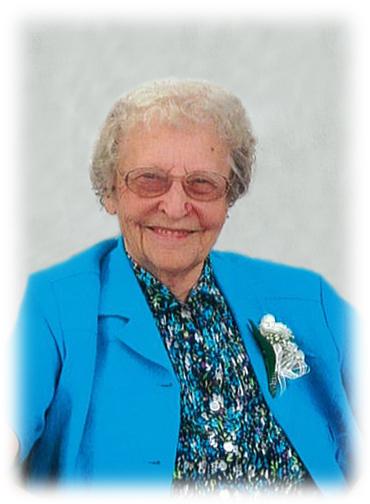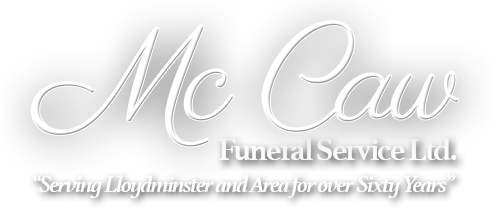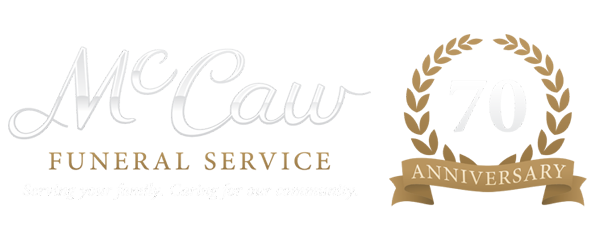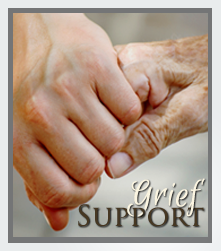
Obituary of Bernice Hope
Please share a memory of Bernice to include in a keepsake book for family and friends.
HOPE ~ Bernice Bertha Agnes Hope passed away at the Maidstone Health Complex on Friday, September 20, 2013 at the age of 95 years.
Bernice was born on March 6, 1918 in Lashburn, Saskatchewan to John and Bertha Hickson, Barr Colonists.
She leaves to mourn her passing: her loving children, Cliff (Doreen) Hope and Jim (June) Hope; seven grandchildren: Barb (Tony), Todd (Raylene), Ashley (Karen), Kendra (Jeff), Sheldon (Haley), Bradley and Tyler (Carmella); thirteen great grandchildren: Jordyn, Devyn, Jenna, Kylar, Andrew, Jason, Karleen, Tyler, Madison, Austin, Jaguar, Hudson and Bentley.
The Funeral Service for Bernice was conducted from Waseca Memorial Hall, Waseca, Saskatchewan on Friday, September 27, 2013 at 12:00 P.M. with Pastor Pat Ribey officiating.
Christine Pike gave the eulogy.
The hymns sung were, "In the Garden" and "Bringing in the Sheaves" accompanied by organist, June Franks.
The song, "I Believe" was performed by quartet, Lynn Blyth, Karen Johnston, Ellen Oddan and Melanie Freeston.
A private family viewing and interment were held at Forest Bank Church and Cemetery on Friday, September 27, 2013 prior to the funeral service.
Organist, Eileen Evans played during the private service.
The honorary pallbearers were all of Bernice's family and friends.
The active pallbearers were her grandchildren: Barbara Hope, Ashley Hope, Todd Hope, Kendra Silvester, Sheldon Hope, Brad Hope and Tyler Hope.
Donations in memory of Bernice may be made to the Forest Bank Church or to Maidstone Palliative Care.
McCaw Funeral Service Ltd., of Lloydminster, Alberta administered the funeral arrangements.
Eulogy for Bernice Hope by Christine Pike
I am going to talk about my neighbor.
A week ago today my neighbors to the fourth and fifth generation were bringing in the harvest as were the Hopes as they had done for over 100 years. It was then our neighbor left us. She had seen many harvests and helped bring them in.
At harvest time the robust old harvest hymns came to mind.
Come ye thankful people come,
Raise the song of harvest home!
All is safely gathered in
Ere the winter storms begin.
Bright robes of gold the fields adorn,
The hills with joy are ringing.
The valleys stand so thick with corn
That even they are singing.
And the golden oldie still on the harvest hymn hit parade.
Sowing in the morning, sewing seeds of kindness,
Sowing in the noontide and the dewy eve.
Waiting for the harvest and the time of reaping
We shall come rejoicing, bringing in the sheaves.
When a young or comparatively young person dies we feel grief and shock. When someone dies who has reached more, much much more than the four score and ten which was once considered old, we do not feel quite the same grief or sorrow. There is sorrow of course, but there is, I believe, a sense of loss knowing that we can no longer call on a long lifetime of experience and knowledge, but on the other hand we know that someone had a chance, a good chance at life and we had a good chance to know them.
My neighbor was a people person. A PEOPLE PERSON. Is that a skill something with which some people are born with, or is it something which is considered so important that they make sure to develop it?
I wouldn't know. I do know however that my neighbor was a people person.
She learned the household arts at an early age, as did a number of girls in those days, on the death of their mother.
Mrs. Hickson, Bertha died in 1921 leaving eleven children, of which Bernice was number 10.
Bernice would speak of Mrs. Joe Huard and how grateful they were to her for her help.
The Hickson children did get to go to school; Gully, Lashburn and Garvock schools at various times.
At the age of thirteen, Bernice found herself as she put it "chief cook and bottle washer." She would try to see how much she could accomplish before she left for school. She could do canning, bake bread, wash clothes - and of course washing clothes was done by hand, using a scrubbing board, that rectangle of corrugated glass, after heating the water on the stove after carrying in the water. She also made the soap as well as the butter.
I shouldn't have to tell you that the Hickson's, a Barr Colony family, lived in a log house. I shouldn't have to tell you there was no running water, no plumbing, no electricity and the heat came from a wood burning stove, which also cooked the food.
Might I remind you that the household water supply in the winter time came from snow carried in and packed into a barrel by the stove where it slowly melted, putting the temperature of the room down while doing so.
Bernice had to learn how to cut worn sheets down the middle, turn the inside to the outside, sew the outsides together down the new middle and that would make a sheet last a little longer. Make it last, that used to be the way.
She learned to use those wonderful cotton sacks in which 100 pounds of flour came in. They used to make sheets, pillow cases, aprons, curtains, table clothes, tea towels and even underwear. Mrs. Huard had taught her that white fabric had to be white when laundered, so Bernice made those flour sacks white.
Mrs. Huard also told her to get her work done before giving herself the privilege of a cup of tea or reading a book.
The late Syl Ratcliff lived two miles west of our place and whenever I rode the now gone trails on his farm I would sometimes stop to visit if he was about when I rode near the buildings. One time, he pointed out the portion of the Forest Bank to Lashburn trail which ran through the corner of his farm. He said he used to see the Hope boys, Albert and Ed ride along there to visit the Hickson girls, Grace and Bernice.
When Ed Hope married Bernice Hickson she moved from a log house to a log house. The little house has been the property of Carl Anderson who lived north of Big Gully Creek in Marie Hill District. After numbering the logs, Ed dismantled it and with some help moved it to its new site where he reassembled it. Over the years it was remodeled and added on to, as Ed was a carpenter. It was always bright, clean and welcoming.
Bernice claimed that on her marriage she was coddled, for she had a washing machine, a gas powered iron, and even a dumb waiter, a device which was considered quite the house keeper's helper. I recall only perhaps three in the district. They could still be considered a great help.
The word "coddled" was Bernice's own, but I bet Ed was coddled too.
Soon Cliff and Jim came along. In those days children lived a life where they were free to wander. We were lucky then as there were many places to wander. There would be times I would be flying kites with Cliff and Jim in the field between our homesteads. Often as not I would be in the house visiting their mother: her conversation was better, although I still liked flying kites.
Whenever I visited them or any other neighbor, I was always treated like an adult. "Would you like a cup of tea?" "Take this chair, it's more comfortable."
Many years later I might send a niece or nephew to visit Mrs. Hope, on foot or horseback. They'd return a couple of hours later, having been treated like an adult, offered tea and a good chair.
When I was yet quite young, Ed and Bernice would sometimes pick me up to go somewhere and I'd sit in the back of the car with Cliff and Jim, one on either side. This was before seat belts so Cliff and Jim stood up, hanging onto the back of the front seats from where they hammered their father with questions. It was "Daddy who, Daddy what, Daddy when," and Daddy everything. On about the third trip, their mother said, "You don't want to ride in the back with the kids, ride in the front with us."
Well that was good, the view was better in more ways that one, except that it meant "Daddy who, Daddy where, Daddy when," was now in my ears. How else can children learn, except by asking questions and having them answered?
Of course I didn't call my neighbor Bernice! I did not call the parents of my school mates by their first names; not until I was 21. We were very respectful then when it came to names.
Ed and Bernice were community minded and then some. In those days children on farms could spend their childhood and youth and never know their neighbors across the field or down the road, and carry that life style into their adult life.
Ed and Bernice worked in Forrest Bank and they helped in Waseca. Bernice was of course a part of the more than thirty member group, a power house known as the Forrest Bank Friendship Group. She prepared for and worked at turkey suppers, showers, weddings, anniversaries, work bees at the school, now community centre and at the church yard. She was involved in the catering, the teas and the bazaars to which she contributed fine hand work.
She helped build a Forest Bank float for Canada's Centennial year, 1967, and then rode on it in a period costume which she made with a cross sash indicating she represented the province of Quebec. After the float was in the Maidstone first of July parade the ladies took off their costumes, put on work clothes and went to work in the dining hall.
She helped create a perennial bed at the Forrest Bank church. She helped replace the shingles on the roof of the community centre...the list goes on.
Then there was the square dancing and the curling, the bowling, the golfing, and why not? She and Ed deserved some free time.
Bernice was one of the peerless leaders in the Forrest Bank 4H club teaching sewing. To her young 4H members she would say, "If you need extra help come on a Saturday."
She also sewed for others at that time; her finishing details or garment would be perfectly done.
I recall that it was just a few years ago when although she had very good hand writing, she took a course in calligraphy, the art of fine hand writing, just for the challenge.
You recall how I recounted how Mrs. Huard told Bernice to get her work done?
In 1977, Ed and Bernice moved to Maidstone. The late Howard Eidsness, who taught for years in Maidstone, would sometimes call at that immaculate home for coffee. He was intrigued that Bernice would sit there drinking coffee as though she had nothing else to do. After a while, it dawned on him that she had already done what would be to some people a full days work. She always practiced what Mrs. Huard preached all those years.
My neighbor was a gardener always. I think of petunias and geraniums. She was one of the volunteers who planted and maintained those big containers along Maidstone's main street, until last year.
One spring she told me she'd been gardening near the front door, which was locked, not knowing a powerful wind had come up. When she turned the corner to go to the back door the wind hit her so hard she could hardly face it. "I took a long time to get there, but I made it," she said.
She'd phone me from the hospital, but I only phoned her a few times as I thought I could easily phone at an inconvenient time.
"How are you doing?," "Not worth a darn" she'd reply, annoyed at herself because she could not do what she wanted, she wanted to accomplish something.
When my sister Maureen and I were quite young we started a custom where we would try to beat Ed Hope in phoning to say "Merry Christmas." Within a reasonable time early in the morning. We kept it up after Ed was gone, Bernice and I, but of late years I would often be too late: She'd have left to go somewhere for breakfast!
A few weeks ago my neighbor sold her car to one of my great nephews. She'd ask me how they liked it and was it running alright?
Last summer my ride on mower was at the small engine repair shop for weeks and weeks. I could still keep the lawns in shape as they are done with the walk behind mower, but what I call the rough mowing around the barn and garage looked very rough. One day I heard the sound of a small motor, and a ride on mower driven by a young man came around the corner. "I have come to mow your grass" said he. "You sure are Ed and Bernice's great grandson" said I.
Last winter when we had a blizzard, the road past our place was sort of opened, five days later. I think it was the third day that I received a phone call, from a yard where over the years had come many phone calls. "Are you alright? Do you need something? Are you running out of anything?," "You sure can tell you are Ed and Bernice's granddaughter," I said.
Just recently a phone call was relayed to me from the harvest fields. It appeared that three cows of mine were out on the newly made canola stubble on Hope's land next to ours. It was calves, just as I thought, calves being what they are.
Did I get the phone call because the Hope's were annoyed that my calves were out on their land? No, I received the phone call because they knew I'd be annoyed that my calves were out on their land.
So, I don't' think my neighbor is gone. My neighbor lives on. I can't talk to her, I can't see her, but she is still here.
I started off with a few snatches of poetry and I will end the same way with a snippet from the English poet, John Oxenham.
It's not so much where you live
As how you live, and whether good
Comes from you and the neighborhood
And so it is with my neighbor, and although we will "come rejoicing bringing in the sheaves" of a bountiful harvest, we can also "come rejoicing that we knew my neighbor."
Christine
Card of Thanks
The family of Bernice Hope would like to sincerely thank the following: The nurses, doctors and hospital staff at the Maidstone Hospital and Palliative Care Unit, to the home care nurses who assisted Mom before she went to the hospital, to those who visited and phoned Mom while she was in the hospital, to Ann at the Pine Island Suites who made Mom so welcome. Thank you to Pat Ribey for her message, to June Franks and Eileen Evans for their music, to Lynn, Karen, Melanie and Ellen for their songs, Christine Pike for the eulogy, to the grandchildren for being pallbearers, to The Waseca Hall Board for the great lunch they served, McCaw Funeral Service Ltd. for their services, Bill Pike for opening and closing the grave, and to all the people who attended Mom's funeral. Thank you to those who brought food, flowers and those who gave donations in lieu of flowers. Thank you for all the condolences, your thoughtfulness will always be remembered and appreciated. Thank you very much.
Jim, June and family
Cliff, Doreen and family
Friday
27
September
Service Information
12:00 pm
Friday, September 27, 2013
Waseca Memorial Hall
Waseca, Saskatchewan, Canada
Need Directions?
Interment Information
Forest Bank Cemetery
Maidstone, Saskatchewan, Canada
Need Directions?
Online Memory & Photo Sharing Event
Ongoing
Online Event
About this Event

In Loving Memory
Bernice Hope
1918 - 2013
Look inside to read what others have shared
Family and friends are coming together online to create a special keepsake. Every memory left on the online obituary will be automatically included in this book.
5101 - 50 Street
Lloydminster, Alberta T9V 0M2



